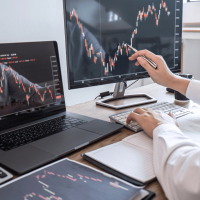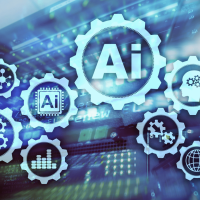Article written by Maria Fonseca and Paula Newton
Even though the sharing economy and the digital commons is a scenario very present in our society nowadays, it is still peripheral to mainstream business. How about picturing the digital commons as the main shaper of the economic system of a future to come? Could the digital commons overthrow traditional business models? In 2014, a course called the Future of Media that is held at the Royal Institute of Technology in Stockholm released a book addressing the theme of the future of the digital commons and the sharing economy. The book is the outcome of 61 different students preparing their ideas of potential future scenarios for the digital commons, broken down into 21 project groups. There was also an executive group of five students that had the role of supporting and coordinating the work of the others through ultimately producing the book. Examining some of the projects shows interesting findings.
Reputation Aggregators Will Be A Way To Assess Trust
One project looked at the future of trust and reputation systems. Trust is a vital part of the sharing economy, as people seek to share their cars, homes and more with other people. Indeed as explained:
“Trust between strangers has been described as one of the four basic principles of collaborative consumption.”
Reputation aggregators may form an important part of how trust is assessed in the future, particularly if both online and offline reputation systems can be somehow combined in one place. Some companies have already been trying to achieve this, and it will be interesting to see how this develops. The students developed a concept that explores the reputation, called The Identity Bank (IB). IB is a a cross-referencing system where an individual’s online and offline identities merge into one single entity. IB collects data from partner platforms like Facebook, Google, Airbnb, Uber, TaskRabbit, Couchsurfing and puts together a singular identity picture. The students produced a film explaining their concept.
Identity BankThe 3 D Society
Another project looked at the 3D society. The report explains that “prosumers” have emerged in recent years. These are people that are both consumers and producers, and 3D printing advancements are making this increasingly likely. A shift in the traditional production lines will occur, enabling customization to a larger extent. It is hoped that 3D printing in particular is able to help catastrophe struck communities through rapid manufacturing, more efficient use of materials, customisation and mobility. If disaster efforts could be aided through these technologies then this would certainly be beneficial for those struck by them. This interesting chapter can be accessed here.
Making Your Own Energy And Sharing it With Neighbours: Shenergy
Another study looked at the future of a sustainable sharing economy. This project group came up with Shenergy. Shenergy is described as:
“A cloud-based system that helps you become a sustainable energy producer, consumer, or both.”
The idea behind it is that if people are not able in the future for some reason to be able to rely on energy production companies then they could produce their own energy. This will give rise to an upsurge of micro energy producers that can share or donate the excess. This is hoped to lead to a sustainable energy future. The way that it is anticipated to work is that it is a system that stores information about a person’s energy data through communicating with electric measure instruments in a home. This helps people to keep track of what they use or produce or both.
You-Topia: Playing The Game of Social Collaboration
An interesting chapter is the one about social collaboration. According to the students, in the future, to be an active social collaborator will have a strong prominence on one’s profile. Being certified as social contributor or social innovator will be as important as having a master degree. The students devised a software called You-Topia that promotes this kinds of values. «YOU-TOPIA is a platform that uses gamification theory to make people contribute and understand the relationship and interdependence of environment, economy and society. The software monitors your actions and transactions that are supportive of ecological brands sold in the stores of your community, and the CO2 footprint level project held by your municipality.
You-topiaTivoofy
Media consumption was another important area of study for the group. The future is envisaged to be different than from today. The project presented Tivoofy which offers television series and movies in an individualistic manner. It is expected that this could be the case by 2025. This is seen to be driven by the millennial generation who expect to be able to get what they want. The idea of Tivoofy is that it would be a new broadcasting platform that would be the one and only global content provider for television series and movies, and this would make it able to meet the demands of the audience through having access to so much content.
Crowd Surveillance
Yet another fascinating but somewhat creepy project carried out by the group was into the issue of crowd surveillance. The idea behind this is that of the citizens controlling their own surveillance. The group asked, “What if the authorities asked us all to watch each other?” The watching would be using surveillance tools that would be under the government’s control. It is argued that this would lead to the ability for the services to be able to respond more rapidly to problems because problems would be spotted more quickly due to a vastly expanded “workforce” of regular people. This is an interesting idea, but it is questionable whether people really want to be watched by their neighbours quite as much as all that, and it also raises questions about stalking.
Image source: Digital commons BookOverall, the book has some very interesting foresights, predictions and suggestions of what could happen in the future with the digital nation and the sharing economy. It has been possible to only review a few of those here, but with its somewhat academic stance and focus on entertaining, the book is definitely worth investing some time in to have a read.

Maria Fonseca is the Editor and Infographic Artist for IntelligentHQ. She is also a thought leader writing about social innovation, sharing economy, social business, and the commons. Aside her work for IntelligentHQ, Maria Fonseca is a visual artist and filmmaker that has exhibited widely in international events such as Manifesta 5, Sao Paulo Biennial, Photo Espana, Moderna Museet in Stockholm, Joshibi University and many others. She concluded her PhD on essayistic filmmaking , taken at University of Westminster in London and is preparing her post doc that will explore the links between creativity and the sharing economy.










